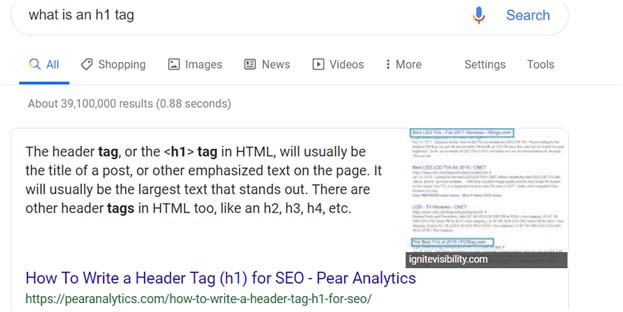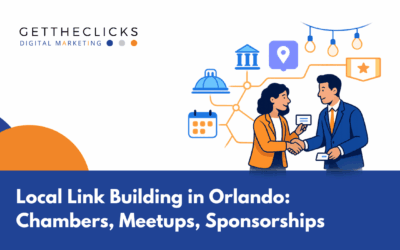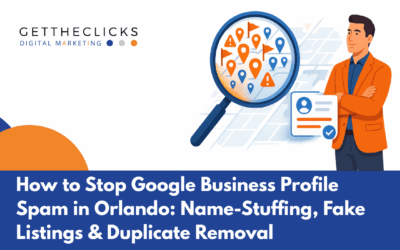Like many SEO strategies, H Tags serve an essential function for users and SEO specialists. Headers can indirectly influence your rankings by making your content more enjoyable and organic for visitors to your site to read. Headers provide keyword-rich context about your content for search engines. For people that are serious about SEO, they understand optimizing your header tags is a must. Get The Clicks is here to provide tips on how to best utilize headers for SEO.
1. Use Headers to Provide Structure
Headers provide structure and context for your article. Every header needs to give the reader clarity on the information they can gather from paragraph text that follows below.
- The best way to describe headers is by comparing them to a table of content in a non-fiction book:
- Your H1 introduces the topic to your page, just like a title tells a reader what the book is about.
- H2 are more like book chapters, letting readers know what the main topics you will cover in each section of the article they are reading.
- Subsequent headers, or H3s-H6s, act as additional sub-headings within each section. Subsequent headers are just like book chapters are split up into various sub-topics.
An example of this, the H1 is the title of the article. The H2s are the chapters of your article, which are all related to the central theme of the article.
2. Use Headers to Break Up Text
We live in a world where people scan more than they read. A scannable article is a readable article, and a readable article is more likely to rank well in search engines.
Scannability is key to the success of an article, and it’s one of the most overlooked factors when it comes to content marketing. When an article is scannable, users tend to stay on your page more and read it, instead of bouncing back to Google. Also, they will be more likely to share your article with their friends.
3. Include Keywords in Your Header Tags
Although headers don’t have as great as an impact on your SEO as a backlink from an authoritative site, Google still considers them. Especially when it comes to them analyzing the context of your page. However, this doesn’t mean you should throw a bunch of keywords. It’s always better to be judicious with your keywords, not spammy.
4. Optimize for Featured Snippets
One place where header tags make a significant impact on SEO is featured snippets in two distinct ways:
The first is optimizing your header tag for a long-tail voice search keyword and then answering the query directly below using text within the paragraph tags.
The second is using subsequent, smaller headings to display a different list of items. Google uses these headers to show its own bulleted and numbered lists that feature their snippet results.
For example, if you were to Google, “What is an H1 tag?” Google will pull a paragraph of text that has been optimized for its H1 keyword.

Stay Ahead with Header Tags
If you want to be an SEO rockstar, don’t ignore any task, regardless of how small the impact is. It’s important to pay attention to how you use header tag. Get The Clicks, an Orlando SEO agency is here to tell you, you won’t be wasting your efforts.





